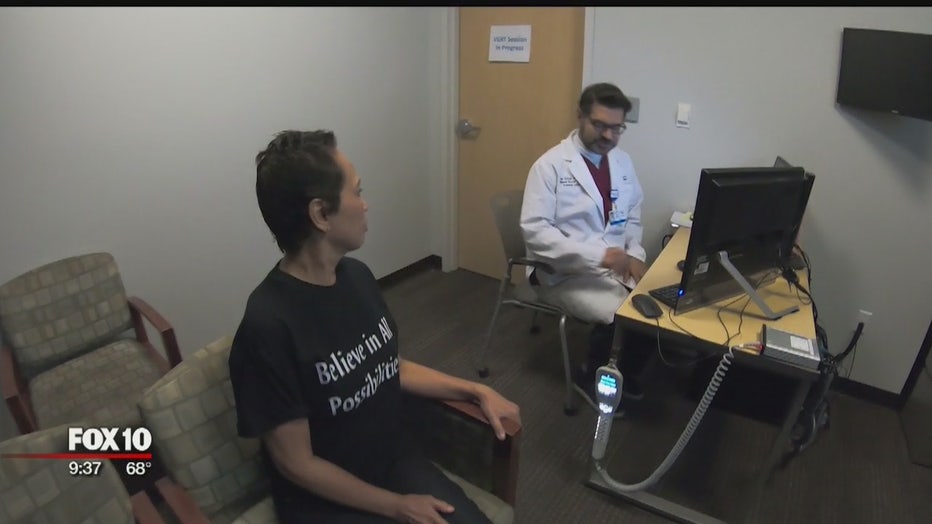Valley hospital using 3D technology to show cancer patients how their treatment will work
GILBERT, Ariz. - Virtual Reality is helping cancer patients, by showing them the battle plan.
The Banner MD Anderson Center in Gilbert is the first to use 3D technology to show how the treatment works, before it even starts.
Ana Motley is going through radiation treatment to fight a tumor that is sitting on her spleen. It was first spotted in 2018, after a freak accident on vacation.
"I was in shock. I said, 'no. You're not going to tell me I have cancer,'" said Motley. "I just got hit by a kayak. That's what I came here for. I said, 'No. I'm not going to accept that.'"
But it was true, and doctors decided to fight back with radiation. Before treatment, Motley was shown a 3D video on what to expect.
"When you go in that room, it's very intimidating," said Motley. "The machine in your face, going around you. You lay there with anxiety you don't know what's happening."
The technology was originally designed to help train staff. Then, Dr. Amir Sadeghi came up with the bright idea that it might help patients as well.
Dr. Sadeghi lost his father to colon cancer.
"I always had a passion to provide educational tools for patients, because my father never had it, and we never knew what was going on," Dr. Sadeghi.
The 3D program shows patients an image inside their own bodies. They can see where the cancer is hiding, and how the radiation will target the tumor. It helps doctors explain the process, from the illness to the treatment and possible side effects.
"Many patients I treat have to take anti-anxiety medications and be sedated during treatments, because of anxiety," said Dr. Gary Walker, a radiation oncologist. "So, this tool decreases those medications, which have side effects as well."
The Banner MD Anderson Center in Gilbert was the first to use the technology to increase understanding and decrease anxiety. After one month, the method is getting rave reviews.

Motley admits it helped ease her mind, so she can focus on fighting for her life.
"Just keep on fighting and being positive, and hopefully encouraging other people to do the same," said Motley.
The hospital has surveyed about 50 patients so far. and they are reporting a 40% better understanding of the radiation treatment, and a 20% drop in their overall anxiety.

